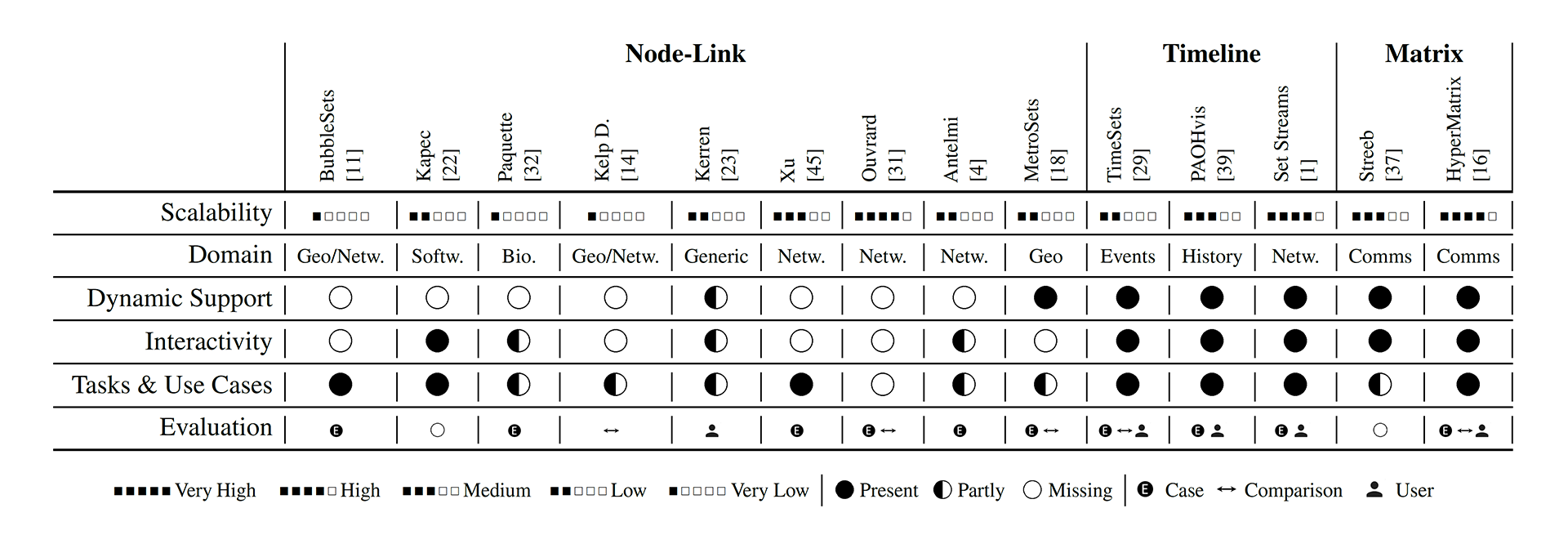Towards a Survey on Static and Dynamic Hypergraph Visualizations
Maximilian T. Fischer, Alexander Frings, Daniel Keim, Daniel Seebacher
External link (DOI)
View presentation:2021-10-28T16:10:00ZGMT-0600Change your timezone on the schedule page
2021-10-28T16:10:00Z

Fast forward
Direct link to video on YouTube: https://youtu.be/4jwfa4R1Ndw
Keywords
Social Science, Education, Humanities, Journalism, Intelligence Analysis, Knowledge Work, State-of-the-art Survey, Graph/Network and Tree Data
Abstract
Leveraging hypergraph structures to model advanced processes has gained much attention over the last few years in many areas, ranging from protein-interaction in computational biology to image retrieval using machine learning. Hypergraph models can provide a more accurate representation of the underlying processes while reducing the overall number of links compared to regular representations. However, interactive visualization methods for hypergraphs and hypergraph-based models have rarely been explored or systematically analyzed. This paper reviews the existing research landscape for hypergraph and hypergraph model visualizations and assesses the currently employed techniques. We provide an overview and a categorization of proposed approaches, focusing on performance, scalability, interaction support, successful evaluation, and the ability to represent different underlying data structures, including a recent demand for a temporal representation of interaction networks and their improvements beyond graph-based methods. Lastly, we discuss the different strengths and weaknesses of the individual approaches and give an insight into the future challenges arising in this emerging research field.